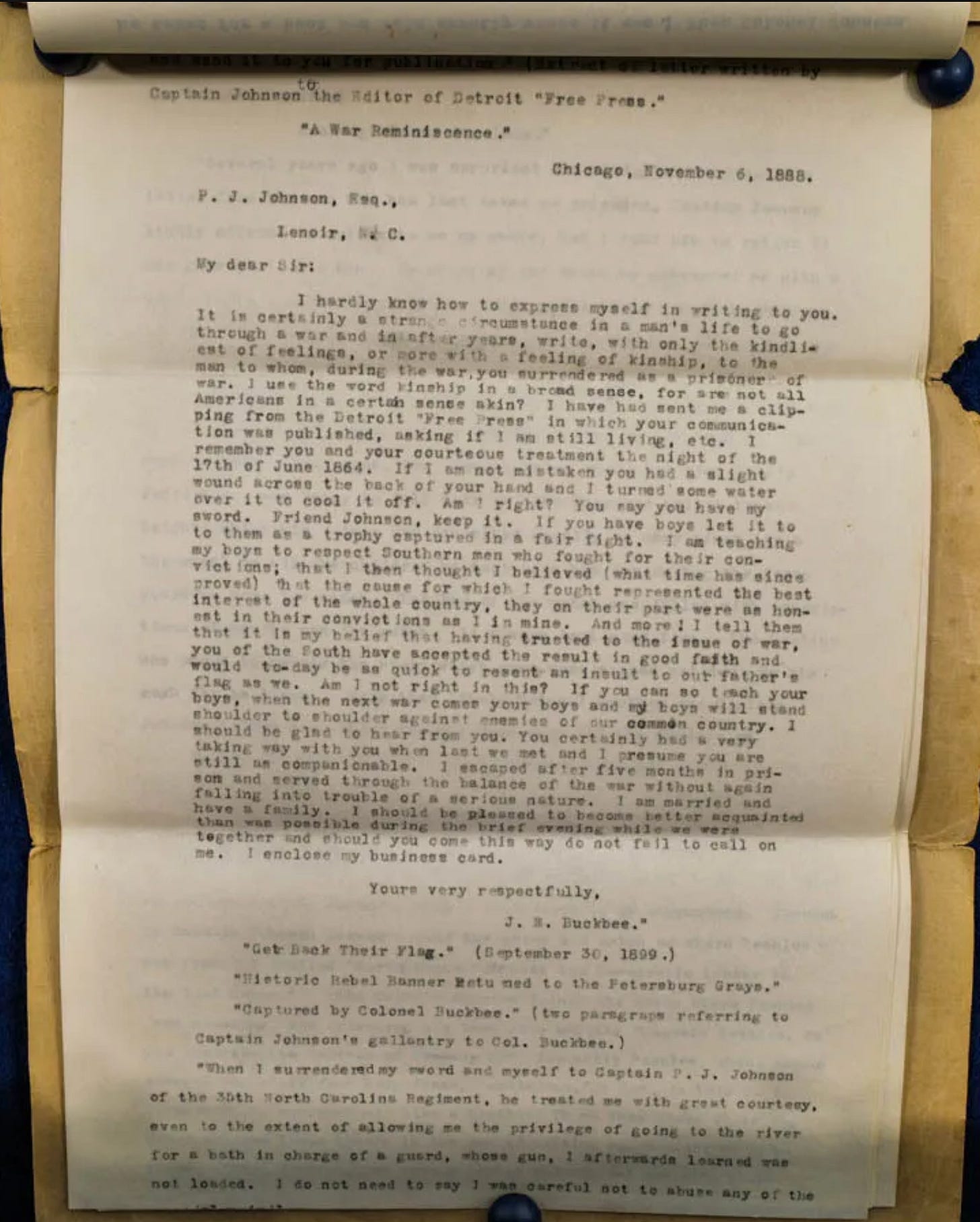We need to talk about the c-word
One word. So much baggage.
Hullooo! So glad you popped by. Before we dive in, a few quick notes up front—part community magic, part technical drama.
Note to listeners — UPDATE: We have liftoff! I was able to reassemble, re-record, and post the audio for this piece after a few days of YouTubing. Not as fun as river tubing, but way more useful in this instance. You’ll find the link for that below. If you’ve been here before, you might notice it’s quieter today. That’s because there’s no audio voiceover this week. The software I normally use (GarageBand—yes, I know, stop laughing) went rogue and disappeared all my files. So, for those who prefer to listen, we’re kicking it old school. I hope you’ll hang out and read instead.
Note to community builders:
If this essay sparks even a tiny “hmm…”, I’d be thrilled if you gave it a like (💚), share, or restack (♻️)—yep, press all the digital buttons. Or jump into the comments and chat with me and the crew. Those little actions help these ideas find their way to even more curious minds, which is a big part of the whole community-building thing we’ve got going here.
I keep this work free because I want it to stay open to everyone, always. But if you’ve got a little wiggle room in your budget to support the vibe here, one-time contributions and paid subscriptions are always welcome—and wildly appreciated. (Thanks to Jaki and Linda for the recent support!)
All righty.
On to today’s essay! “We Need to Talk about the C-Word”
(Audio option below, read by the author.)
Let’s get this out of the way. Not that c-word. I mean the one that really gets people clutching their pearls: compromise. Nearly as likely to elicit raised eyebrows, suggesting compromise these days feels like inviting a skunk to a garden party. Once a hallmark of maturity and diplomacy, it’s now met with skepticism or flat-out resistance. Surrender a core identity or belief? Give up principles? What idiot would suggest such a thing?!
I get it. I’ve felt the same eye-narrowing, butt-clenching, hackle-raising response when someone questions something foundational to who I am. Even when their words sound conciliatory, they can feel like mockery. Instead of opening up, I shut down.
Let’s also be clear: I’m not neutral. I’m not calling for a vague middle ground in the name of civility while ignoring the real harm happening around us.
The July 4 omnibus bill (big and not remotely beautiful) adds $150 billion to military defense and nearly $170 billion to immigration enforcement. Over $100 billion of that goes to ICE—an agency already detaining people without due process using masked, unidentified agents. Another $46 billion builds border walls and surveillance infrastructure, with the rest funding patrols and tech.
Meanwhile, the bill slashes Medicaid, food assistance, and health care subsidies, with delayed rollouts that push most of the pain until after the next election. It also guts clean-energy tax credits, raises taxes on university endowments, and overhauls student loan repayment, all while delivering fresh tax breaks and fossil fuel subsidies to the wealthy and well-connected.
We’re not talking hypotheticals. With the dismantling of democratic norms happening in real time, compromise can feel like capitulation, or even complicity.
And yet, with my partner, coworkers, neighbors, kids, anyone I interact with regularly, I compromise all the time, not because I’m weak, but because I care about staying in relationship. I do it because we live and work in shared spaces, and getting along means making room. I know some of these people hold vastly different beliefs from me. Still, we navigate it, give and take, push and yield. It’s how we make life work.
Why does that instinct vanish when I’m waving my arms at (::waves arms::) those people? The ones who ignored all the warnings, who sold their souls for a single issue, who are not like me!
Part of the answer lies in the brain’s threat response. Your mileage may vary, but as a fellow human, I’m guessing we have similar wiring. I’m no neuroscientist—just someone with an internet connection and too many tabs open. But even a shallow dive into social psychology turns up a flood of forces that nudge us toward us vs. them thinking: tribalism, fight-or-flight response, ingroup favoritism, confirmation bias. The list goes on. We defend our group, fear outsiders, rationalize our beliefs, and respond to perceived threats with ancient urgency.
Suffice to say, we’re running on social software that was great for spotting saber-toothed tigers, less great for global cooperation.
…that’s exactly what authoritarian movements want
And here’s where it gets dangerous: when I let fear or anger push me to demonize others, I’m not resisting authoritarianism, I’m feeding it. I become more brittle, more isolated, more certain that coexistence is impossible. And that’s exactly what authoritarian movements want: a fractured public, too angry, too cynical, too tired, too suspicious, too far gone to try anything else.
Years ago, I went through a mediation training bootcamp. In a series of mock sessions, we played opposing parties in a dispute, two people with seemingly incompatible needs. We were asked to list everything we wanted—practical requests, emotional needs, small wins, big hopes—get it all on the table, or the giant Post-It note, as it were.
The next phase was eye-opening. Each party was asked to strike through the deal-breakers, our lines in the sand. The trainer explained that what remained was shared ground, the space we could build from. Compromise, I learned, is less about what you give up than about clarifying what truly matters and moving forward from there.
This doesn’t mean accepting injustice. Some things shouldn’t be compromised. But between people of equal standing—and this is key—like neighbors, coworkers, classmates, or even strangers online, compromise is the currency of shared lives. Most people we meet day-to-day aren’t lawmakers or lobbyists. They're just reacting to their own fears while trying to protect something they hold dear.
It’s easy to forget how to see them that way.
Groups like Braver Angels bring people from across the political divide together to listen to each other. Most report leaving sessions with a more generous view of the other side. That’s not magic. It’s muscle memory. And like any muscle, it can be strengthened. In Congress, the Problem Solvers Caucus (flawed, sure) still manages to pass legislation in a broken system. Organizations like Convergence bring together activists, business leaders, and organizers to find shared policy ground. These are all signs that compromise, alongside compassion and cooperation, still works.
On a personal level, albeit imperfectly and inconsistently, I try to ask myself certain questions:
How is my fear of loss surfacing?
What does the other person need to feel heard?
Am I listening in a way that invites honesty—or just waiting for my turn to speak?
Can I tell the difference?
I’m not naïve. I don’t expect to walk into every conversation with an open heart and leave with a breakthrough. But I can notice when I’m falling into caricature, when I’m projecting a whole belief system onto someone based on a yard sign or a single sentence. And I can remember how it feels when someone does that to me.
Compromise is imperfect. It’s slow. Everyone has to tolerate a little dissatisfaction. For these reasons, in a society that tells us we should be able to have it all, it gets a bad rap. But show me a collection of people who aren’t engaged in compromise, and I’ll show you true dysfunction.
Whether we get what we want, or lose it, we still have to live with each other. Elections won’t un-knit our neighborhoods. No policy can legislate away the fact that we’re stuck with one another. So how do we keep living together, especially when we’re angry, afraid, and deeply divided?
…are not all Americans in a certain sense akin?
Often, the past gives us the blueprints we need.
During a 2023 episode of Antiques Roadshow, a woman named Annie brought in a collection of Civil War artifacts passed down through her family. Among them was a letter that revealed a story almost lost to history—one that still speaks to the moment we’re in.
Her great-grandfather, P.J. Johnson, had served as a Confederate officer. In 1864, during the Battle of Petersburg, he captured Union Captain J.B. Buckbee of Michigan. That night, though technically enemies, the two men treated each other with care rather than cruelty. Buckbee dressed a wound on Johnson’s hand; Johnson allowed Buckbee to bathe in a nearby river.
Years later, long after the war had ended, Buckbee wrote Johnson a letter that included this remarkable passage:
“It is certainly a strange circumstance in a man's life to go through war and in later years write, with only the kindest of feelings—or more, with a feeling of kinship—to the man to whom, during the war, you surrendered as a prisoner of war. I use the word kinship in a broad sense, for are not all Americans in a certain sense akin?
I'm teaching my boys to respect Southern men who fought for their convictions… If you can so teach your boys, when the next war comes, your boys and my boys will stand shoulder to shoulder against enemies of our common country.”
Compromise won’t solve everything, but contempt solves nothing. Co-existence is the job, and our children are learning from us.
~Elizabeth

I invite you to share your thoughts. One of the very best parts of my week is getting to chat with folks like you in the comments.
Ever wrestled with compromise or just flat-out refused it? How do you keep cool when opinions collide? Bring on your c-word stories! And know that I am grateful for you, even if you’d rather keep all that to yourself for now.
Finally, a few additional thought-provokers to round out today’s offerings:
Writing letters:
In her most recent post, writer and illustrator (and podcast host!), Amy Cowen, writes a letter that she plans to save. I can’t help thinking about who might find her tapestry of words some day and how they will experience them then.
This interview (no thumbnail) with Megan Phelps-Roper, the woman who spent years engaging in terrorist-like activity in support of what she believed was right, before leaving the Westboro Baptist Church in 2012. If you can’t make time for the whole conversation, tune in for the last two minutes at around 17:30.
And finally, a TED Talk with Jim Tamm, former law professor and senior judge for the state of California. With over 40 years in conflict resolution and 2,000 mediations under his belt, he’s an expert in building collaborative workplaces and the author of Radical Collaboration (2005).
Until next time…take good care.






This!!!
"when I let fear or anger push me to demonize others, I’m not resisting authoritarianism, I’m feeding it. I become more brittle, more isolated, more certain that coexistence is impossible. And that’s exactly what authoritarian movements want: a fractured public, too angry, too cynical, too tired, too suspicious, too far gone to try anything else."
We cannot become what we abhor in the other.
This made me think of that song “United we stand, divided we fall.” You are absolutely right to assume a divided nation is easier to conquer. The fact is we all agree on much more than we disagree. But we also receive different information from the media and outside world, which skews differently leading to varying world views. Let’s hope that the evidence becomes overwhelming and we welcome all to join the team of democracy. Stay healthy and resilient, patriots. These aren’t normal times.